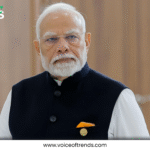Hajj, one of the five pillars of Islam, is a deeply spiritual journey that millions of Muslims make each year to Mecca, Saudi Arabia. For 2025, the Saudi Ministry of Hajj and Umrah has introduced significant changes to ensure a safer and more orderly experience for pilgrims. One of the most notable updates is the ban on young children from participating in the Hajj, a decision that has sparked both support and debate in Muslim communities around the world. This blog post explores the reasons behind this new rule, its impact on families, and other important updates for Hajj 2025.
Table of Contents
ToggleWhy the Ban on Young Children?
Saudi authorities have set a minimum age limit for Hajj pilgrims to 12 years in 2025, effectively barring children under that age from participating. The ban was primarily implemented due to concerns about public safety. The Hajj attracts millions of worshippers annually, creating huge crowds that can pose significant risks, especially for young children. The Ministry of Hajj and Umrah has emphasized that heavy crowds, combined with prolonged walking in extreme heat, can pose significant health risks, including dehydration, exhaustion, and the risk of getting lost in the crowd. The move is aimed at protecting the well-being of young children and ensuring a smooth Hajj experience for all participants.
The decision also aligns with efforts to manage the logistical challenges of hosting an event of this scale. With visitor numbers returning to pre-pandemic levels – estimated at 2 to 3 million annually – crowd control is a key concern. By limiting participation to those aged 12 and above, authorities aim to reduce risks and enhance safety protocols at holy sites such as the Kaaba, Arafat, and Mina.
Impact on Families Planning Hajj
For many Muslim families, Hajj is a deeply personal and communal experience, often envisioned as a shared journey with loved ones, including children. Some families have expressed disappointment over the restriction on children under 12, as it interrupts their long-standing tradition of performing Hajj as a family. Parents who had planned to introduce their young children to this sacred ritual now face the difficult choice of postponing their pilgrimage or traveling without their little ones.
For example, families who have saved for years to undertake Hajj as a unit may need to adjust their plans, potentially causing emotional and financial strain. Travel agencies have reported challenges, with some families requesting refunds or struggling to rearrange bookings. However, others support the decision, recognizing the physical demands of Hajj and the potential dangers for young children in such an intense environment. A safer pilgrimage, they argue, allows parents to focus on their spiritual obligations without the added stress of managing young children in crowded conditions.
Additional Hajj 2025 Regulations
The ban on children is part of a broader set of reforms for Hajj 2025, scheduled to take place from June 4 to 9, depending on the lunar calendar. Here are other key updates pilgrims should know:
Priority for First-Time Pilgrims
To make Hajj accessible to further Muslims, precedence will be given to those who have noway performed the pilgrimage. This step allows more individuals to formally complete this religious duty, helping to meet the growing demand for Hajj visas while maintaining a balanced and organized allocation.
Stricter Visa Policies
Starting February 1, 2025, Saudi Arabia will issue only single-entry visas, valid for 30 days, to pilgrims from 14 countries, including India, Pakistan, Egypt, and Indonesia. This change aims to curb unauthorized Hajj participation, which has contributed to overcrowding in the past. Previously, some individuals used multiple-entry visas for tourism or business to join the pilgrimage without proper registration. The new policy enforces stricter compliance, ensuring only authorized pilgrims access holy sites.
Installment-Based Payment Plans
To ease the fiscal burden for domestic pilgrims( Saudi citizens and residents), the Ministry has introduced a flexible payment system. Hajj packages can now be paid in three installments: a 20 deposit within 72 hours of booking, followed by two 40 payments by Ramadan 20 and Shawwal 20. Reservations are verified only after full payment, encouraging early planning.
Enhanced Safety and Infrastructure
Saudi Arabia is implementing advanced technologies such as AI and data analytics to enable real-time crowd management and tracking of pilgrims. Modern tent camps, improved routes, and tighter access controls to holy sites are also part of the upgrade. These measures are aimed at preventing accidents and ensuring a comfortable experience for all attendees.
Health and Vaccination Requirements
Pilgrims must provide proof of vaccination against meningococcal disease (quadrivalent ACYW vaccine) issued no more than 3 years (for polysaccharide vaccine) or 5 years (for conjugate vaccine) and at least 10 days before arrival. Vaccinations against seasonal influenza are recommended, especially for high-risk groups like the elderly or those with chronic conditions. Pilgrims from polio-endemic countries, such as Afghanistan and Pakistan, must also show proof of oral polio vaccination at least 6 weeks prior to departure.
Preparing for Hajj 2025
For those planning to perform Hajj in 2025, early preparation is crucial. Here are some tips to ensure a smooth journey:
Register through official channels: Use the Naskh app or the official Hajj website to verify permits, book packages, and travel companions. Avoid third-party agents that are not authorized by the Saudi government to prevent scams.
Understand visa requirements: Make sure you have a valid Hajj visa, as tourist or Umrah visas are not valid for Hajj. Overstaying or using the wrong visa can lead to fines, detention, or deportation.
Plan for children: Families with children under 12 should find alternative ways to include them in the Hajj experience, such as educational programs or community events that focus on the importance of Hajj.
Stay informed: Monitor official announcements from the Saudi Ministry of Hajj and Umrah for updates on regulations, dates, and safety guidelines.
Health Precautions: Consult a doctor to make sure you are physically fit to travel, especially if you are elderly or have health conditions. Make sure to bring an adequate supply of your medication along with a doctor’s prescription written in English.
Balancing Tradition and Safety
The decision to ban children under 12 from Hajj 2025 has drawn mixed reactions. Supporters see it as a necessary step to prioritize safety and manage large crowds, while critics say it limits family traditions and the spiritual development of young children. To address these concerns, Saudi authorities are exploring alternatives, such as educational initiatives to teach children about Hajj without exposing them to the physical challenges of Hajj.
As Saudi Arabia refines its Hajj policies, the focus is on creating a safer, more accessible, and spiritually fulfilling experience for all pilgrims. By understanding these new rules and regulations and planning accordingly, pilgrims can approach Hajj 2025 with confidence and dedication.




















